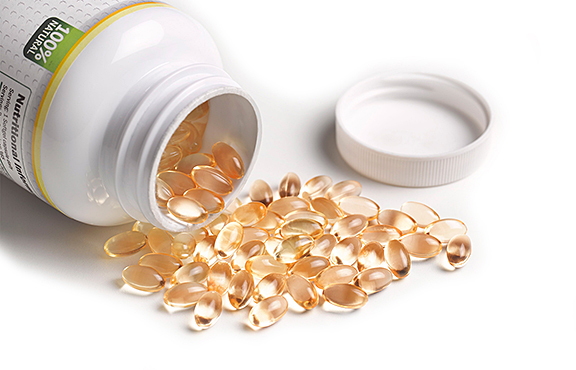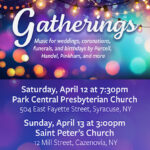How to Combat Seasonal Depression
We’re in Central New York, so we’re all used to long, cloudy winters. It’s March, so we may have some warmer, sunnier weather to look forward to in the next month or so.
Some of you may be starting to come out of a saddening slump that only hits in the colder months. This is known as seasonal affective disorder, or, appropriately acronymed, SAD. It’s a type of depression that only strikes during certain times of the year – usually fall and winter.
About 5% of the U.S. population is diagnosed with SAD, but some others still feel the dampening effects of the dark winter months.
Even as winter comes to a close soon, it’s good to have as many tools in your well-being toolbelt as possible. Knowing how to combat SAD can set you up to feel a little more HAPPY next winter. (Side note: Many of these can also help treat regular depression as well.)
Vitamin D
A major reason people experience SAD is because their vitamin D levels are lower. We get most of our vitamin D from the sun, so when the days get shorter and the sun is obscured by snow and clouds, we don’t get as much vitamin D. (This is another reason why most people with SAD experience it in the winter.)
An easy way to get more vitamin D in the winter is to take a vitamin D supplement. There aren’t a lot of foods that are good sources of vitamin D, so many people are actually vitamin D deficient and don’t even know it. Once the days start to get shorter, pop a vitamin D tablet to make up for those lost rays of sunshine.
Some people also engage in at-home light therapy to get their vitamin D levels up. There are hundreds of “SAD lamps” that use UV light to mimic natural sunlight. Studies have shown that these lights help to improve mood and well-being.
And make the most of when the sun is out – the winter isn’t always dark, after all (though it may feel like it sometimes). Open your blinds during the day. And when you get the chance – and when it’s a comfortable temperature – get outside and enjoy the sunshine.
Exercise
A great way to enjoy the outdoors in the winter is to get in some exercise. There are so many great winter sports, like ice skating, snowshoeing, skiing and snowboarding, and hiking.
Winter sports check three boxes. First, they’re a fun way to get outside and soak up the sun’s rays. Second, exercise helps to combat depression by helping our body produce feel-good chemicals called endorphins. Third, exercise is a great stress reliever.
If there’s a winter sport out there that you haven’t tried yet, you can learn something new while also getting a bunch of well-being benefits.
Additionally, for those who struggle with SAD in the warmer months, exercise can help combat depression year-round. (For some extra benefits of exercise, check out my story from December, “Reap the Physical and Mental Rewards of Exercise.”)
Stress management
Managing stress is a great tool 24/7/365. But in the darker, colder months, it can be a little more difficult to see the bright side.
A great way to relieve stress is to spend time with friends and family. For those who celebrate, we’ve already passed the major winter holidays – but that doesn’t have to be the only time we spend time with loved ones. It’s as easy as inviting a friend over, or having a game night with your family.
If you’re crunched for time, a quick stress reliever is meditation. There are so many different ways to meditate. My favorite is visualization, where I listen to songs that pump me up and envision myself succeeding and reaching my goals. A helpful meditation technique to relieve stress is to just close your eyes and sit in silence for five minutes – it really is that simple.
There are many apps that can guide you through meditation, like Calm and Headspace, but you can also just sit with your thoughts for a bit. You can calm your mind by just having a little bit of time to reflect.
Therapy
If you’re not sold on therapy, read my story from October 2023, “The Benefits of Therapy.” The Sparknotes version: Having someone to talk to, who can guide you and help you to understand and combat your struggles, is a fantastic resource. It can also help you to prioritize your mental health more and feel less isolated. This is another one that is useful all year round.
If you struggle with seasonal depression, the moral of the story is: There are many tools at your disposal to support you during the dimmer parts of the year. The more strategies you add to your toolbelt, the better prepared you’ll be when you need it most.












